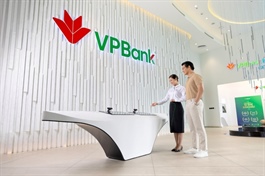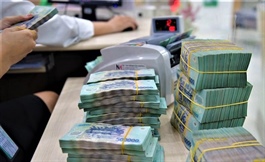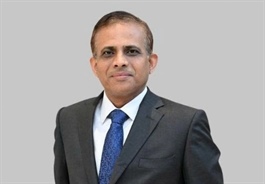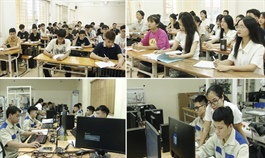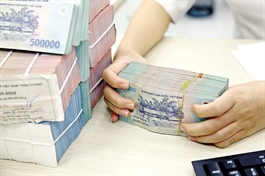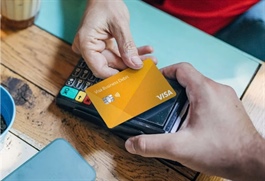Crypto ambitions: from early adopters to digital leaders
Crypto ambitions: from early adopters to digital leaders
As Vietnam prepares to launch its first official digital asset exchanges, the country attempts to position itself as Southeast Asia’s next digital finance powerhouse. Talking to VIR’s Khanh Vy, Kenny Li, co-founder and COO of Manta Network, explored how Vietnam could bridge blockchain and the real economy, turning its grassroots crypto enthusiasm into a competitive national advantage.

Kenny Li, co-founder and COO of Manta Network |
Vietnam is planning to launch exchanges in Ho Chi Minh City and Danang by year’s end. How significant is this move, and what impact could it have on Vietnam’s ambition to become a leading regional hub for digital finance?
Vietnam’s governmental decision to adopt a pro-crypto stance represents a strategic move that aligns perfectly with its ambitions to emerge as a prominent hub for digital finance, not just within Southeast Asia but on the global stage. By embracing cryptocurrencies and blockchain technologies at the policy level, Vietnam positions itself to harness the transformative potential of these innovations, fostering an environment conducive to economic growth and technological advancement.
This approach underscores the country’s commitment to modernising its financial sector, integrating digital assets into mainstream operations, and encouraging adoption among businesses and individuals.
Regionally, Vietnam stands out as one of the pioneering nations to implement such forward-thinking policies. In a landscape where many Southeast Asian countries are still grappling with regulatory uncertainties around cryptocurrencies, Vietnam’s clarity and support provide a significant early-mover advantage.
This stance is poised to draw top-tier talent, including developers, entrepreneurs, and innovators from the web3 ecosystem. By creating a welcoming regulatory framework, Vietnam can become a magnet for startups and established firms specialising in decentralised finance, non-fungible tokens, and blockchain-based solutions. Such an influx of expertise could stimulate local innovation, create high-skilled jobs, and enhance the nation’s competitive edge in regional digital economy rankings.
From a broader global perspective, Vietnam’s alignment between government policies and blockchain technology marks it as an early adopter on the international front. This progressive outlook is likely to resonate with global investors seeking stable and supportive environments for crypto-related ventures.
As a result, the country could attract substantial foreign investment from venture capital firms, multinational corporations, and institutional players in the crypto space. This capital inflow would not only bolster Vietnam’s infrastructure for digital finance but also facilitate partnerships with leading global entities, opening doors to collaborative projects, knowledge transfer, and expanded market access.
Your response suggests a promising future for blockchain in Vietnam. Do you think blockchain will one day be seen as something normal, used more commonly than even gold or securities?
Yes. When Twitter first launched, people laughed at the idea. “Who cares what you ate for breakfast?” they said. But fast-forward to today, and a single post can change a person’s life or impact political relations.
The same thing happened with blogs. At first, bloggers were dismissed as amateurs. But now, people get their news from independent voices rather than just major media outlets.
Crypto is following a similar trajectory. A dozen years ago, people said there was no space for Bitcoin, called it “magic internet money”, and claimed only nerds would use it. But today, we’re seeing institutional adoption and serious government regulation.
Do you have a prediction for where the crypto space in Vietnam is heading over the next five years? Will we see continued growth, or are there risks of a slowdown?
I don’t have a concrete prediction, but I know what I’d like to see. Vietnam already has very high crypto adoption. That makes it the perfect testing ground for using digital assets to buy real goods, like just going into a store and paying with crypto. People have talked about this for years, but no country has really done it yet.
With conferences like GM Vietnam 2025 and hopefully even larger ones in the future, there’s an opportunity here to experiment with that, not just with local users, but also with international talent and investors. Bridging crypto and the real world is a huge opportunity, and Vietnam could really benefit from embracing it.
With regulation becoming more crypto-friendly, there’s a lot of opportunities to explore. Personally, I see huge potential in connecting real-world activity with blockchain. One area I’d love to experiment with is how we can use initial coin offering (ICOs) for small- and medium-sized businesses. It would be like public raising, but for a local coffee shop or restaurant.
These small businesses often struggle with getting bank loans or finding money to invest in new equipment. ICO tools could offer them a new way to raise funds. It’s a powerful idea, and I’d love to see that happen in Vietnam. I believe there’s a lot of outside interest in investing in the country’s potential, and something like this could unlock that.
- 09:25 08/09/2025








